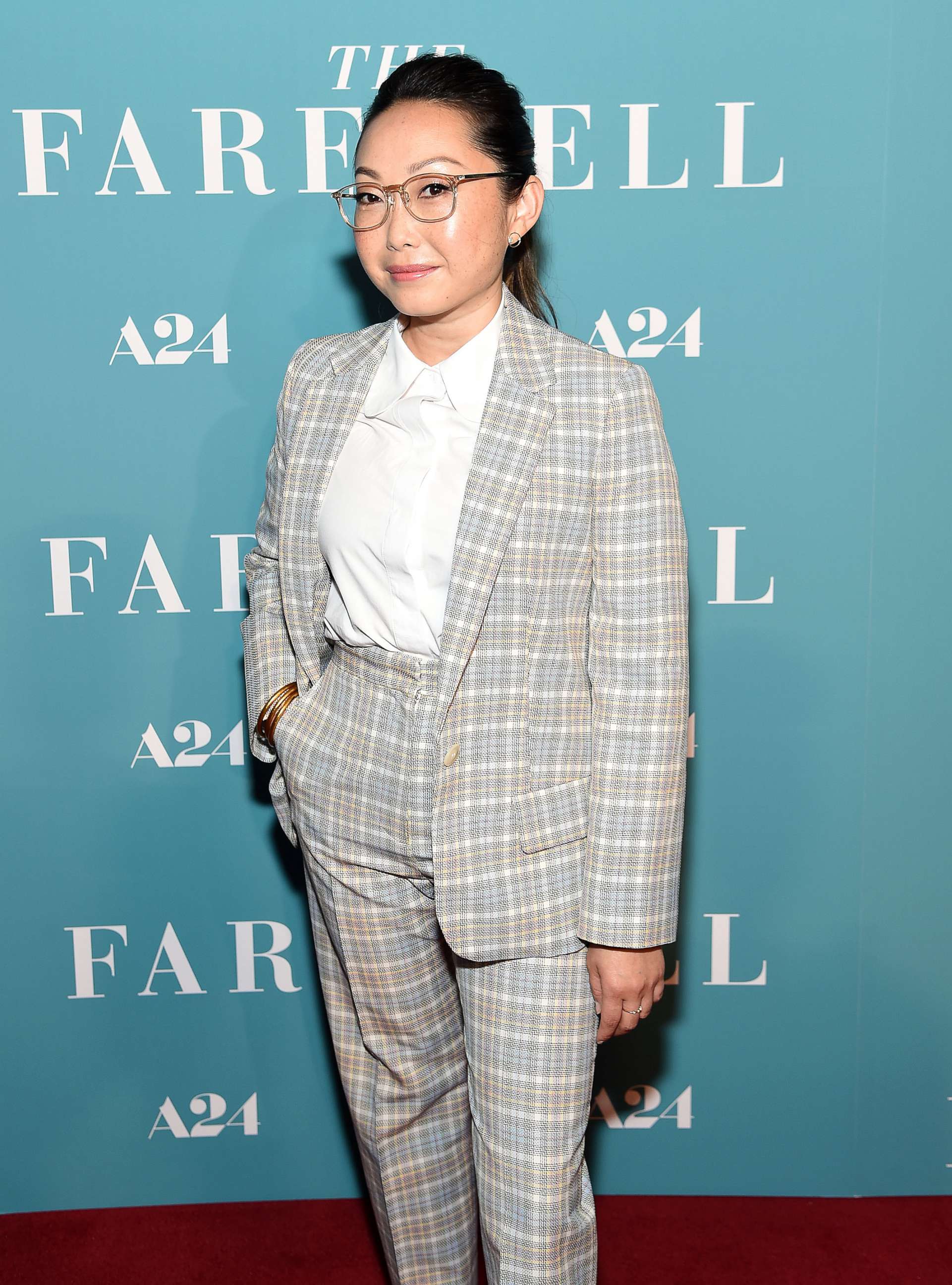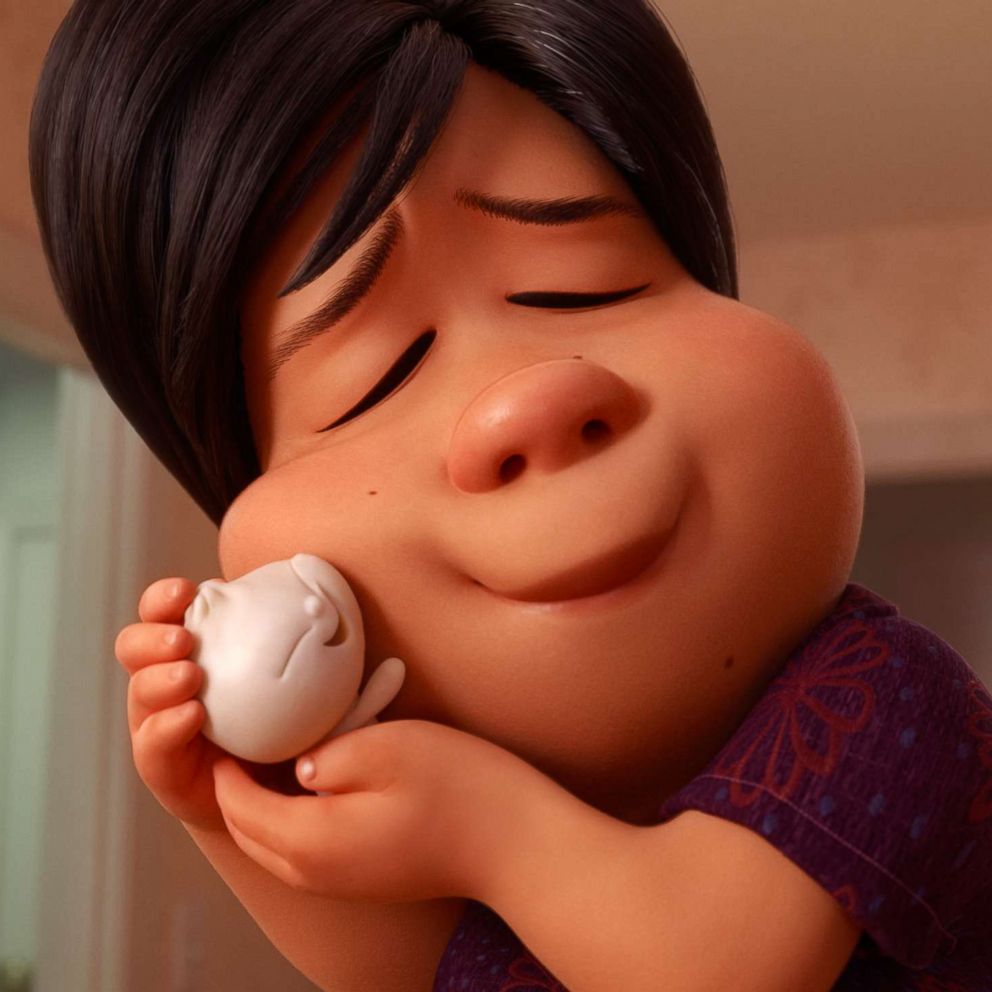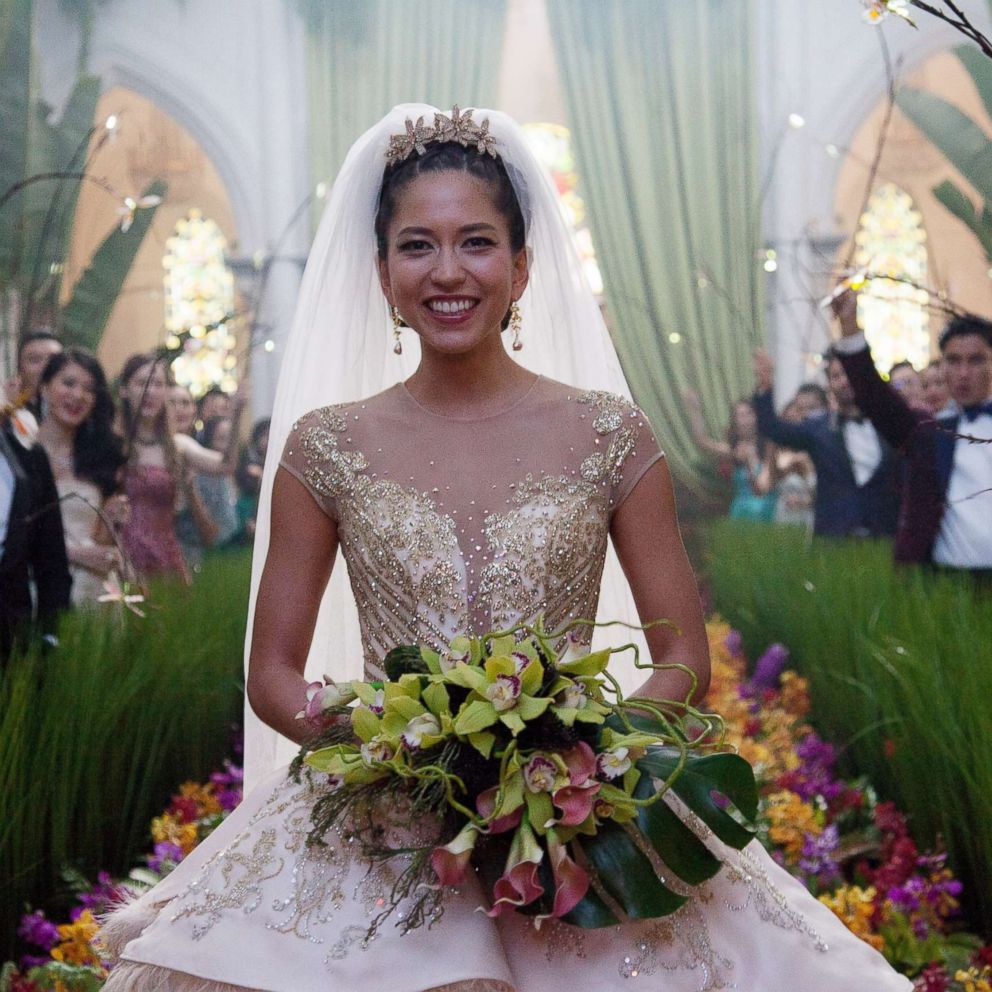Why 'The Farewell,' starring Awkwafina, will make you want to call your grandma
"The Farewell" is based a lie that the director experienced in her family.
"The Farewell" might make you want to call your grandparents immediately.
The new film, out July 12, explores how one family faked a wedding to protect their grandma, who is terminally ill but also doesn't know she is sick. While the story sounds unique, it follows an actual lie that the director, Lulu Wang, experienced in her own family.
"I had ... a kind of an ethical dilemma," Wang said. "But my family said, 'If you want to go see her, you also can't tell her. And we've decided to have your cousin marry his girlfriend as a ruse for everybody to go back and see her.' So it was the setup for obviously a very sad story, but also a lot of really funny moments filled with a lot of joy."
Wang spoke to "GMA" about her writing process and how it felt directing her own story, starring Awkwafina, Tzi Ma, and Diana Lin.

Editor's Note: Wang's answers have been condensed and edited.
Was there ever a point where it felt weird to be directing your own story?
Pretty early in the process, I had to separate the film from my real life. ... And, you know, it's not really my family. It's a representation of the experience that my family went through. Even for Awkwafina, [who plays Billy], I told her I didn't want her to do an imitation of me. It's not a biopic and it's not about having my mannerisms or ways of talking.
I said, "Let's create this character really together. Who is she to you going through this experience? Tell me about your experience as a Chinese American and going back to China." She also studied abroad in Beijing during college. She really infused her own experiences into the character.
Was it easy for you to write something that was based on something so real or did that make the process even harder?
There were challenges as well as ways in which it was easier because I didn't have to reach to try to find things to make up to make the story interesting. There was so much material right at my fingertips.
I think the challenge was actually sorting through all of those details and figuring out what to actually put in the film and what not to. For example, there's a lot of stuff about my parents that I love and wanted to put in the movie but that didn't fit. My dad speaks fluent Russian. He was a diplomat in the Soviet Union and lived in Moscow for 10 years. Really fascinating but, you know, doesn't belong in this movie.
And it's hard also to tell your family that to say, "I know you're really proud of this thing but you know that's not going to go in a movie. Instead we're going to do the scene where you get drunk and you're in your underwear!"
There's a powerful scene where someone says, "You think one's life belongs to one's self but that's the difference between the East and the West." Can you expand on that dialogue?
That was something that was said to me by my actual uncle. As Americans, we're always accused of being very selfish and we really value this idea of like "our truth." Right?
In the more traditional Eastern cultures, it isn't about the individual truth. It's about the greater good and if that truth doesn't serve the greater good then it doesn't matter. That very much influenced the film, this idea of the individual versus the collective. I don't necessarily think that one is right and one is wrong and one is more important. It's just two very different ways of viewing the world.
I believe there has to be a balance of the two. I think one of the reasons so many people resonate with that specific quote and that idea is because we are living in times that are so polarized. People are so lonely and so isolated from family, from connection in general and so I think that there's a real hunger for belonging.
What was it like shooting the film and going back to your family's hometown?
It was pretty powerful because there were a couple of locations that were actually real locations from my life, from my family. It happened by coincidence because I told my [director of photography], I said, "I don't want to stick to facts. We should find the places or locations that are most cinematic and work best for the movie." We scouted a bunch of cemeteries for the cemetery scene but ultimately ended up shooting at my grandfather's cemetery and actually at his grave site.
That was really emotional because I left when I was 6 and I haven't seen him since he passed away when I was about 10. I was in school and I didn't go back to China to see him while he was sick, and he died quickly and I didn't go to his funeral either.
The day that we were doing a test scout of the cemetery, it was about to rain. These giant storm clouds rolled in. And you know that energy, that electricity that's in the air right before it's about to rain? That's what it felt like. I was sort of walking around and I saw everybody gathered around his grave. Everybody's measuring and talking about what would happen to the graves? And can we put a tent over there? Can we do this? And I just kind of stood there and watched it and thought, "Wow. This is really really incredible to be here with all of these people about to take on this endeavor."
He also wanted to be a writer. He was working towards writing some things at the time when he passed, and so having my crew, having these American producers there was a really special moment.
There were a lot of those kinds of things where the two worlds that I've spent my entire life navigating -- America, work, career, friends and then China, family, home -- having those two worlds intersect was really beautiful.
Your story first appeared on the podcast, "This American Life." Why was it important for you to turn it into a movie?
I really wanted to make it as a film first actually, and I wasn't allowed to because everyone kept asking, "Is this a Chinese movie? Is this an American movie?" And I would say, "It's an American movie." But once I described what I wanted to make, people would say, "Well is that really an American movie? Is it going to be subtitled and have a full Asian Asian-American cast?"
But it's also not a Chinese movie because the perspective is of Billy's -- she's an American and I'm an American.
"This American Life" actually allowed me to tell the story without labels, just as a story to say, "Well this is really interesting that this happened. Let's dig deeper and let's talk to people and let's investigate."
This was a different role for Awkwafina compared to her past comedic roles. What was it like working with her and seeing her dive into a completely different character?
It was really, really interesting. I love when I can surprise people and I love when I can work with actors who I know are going to surprise their audiences.
I think that she will admit she often uses humor as a defense mechanism when she feels awkward. I had to get her to lean away from that and just be. I told her it was sort of the zen experience. She would say, "Well, what do I do?" And I would say "Nothing. Just think about your grandma."
I think that was in the beginning very new for her, but then once she got the hang of it where she could just embody the character and embody the emotions and not lean and not have to actually do anything, it was actually incredibly powerful.







